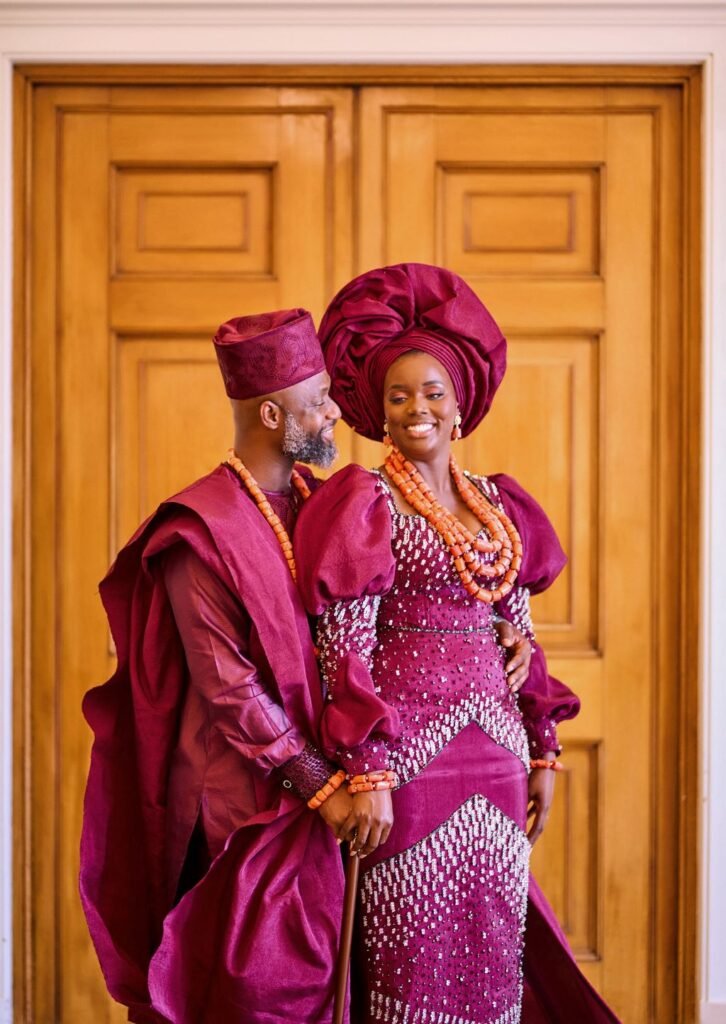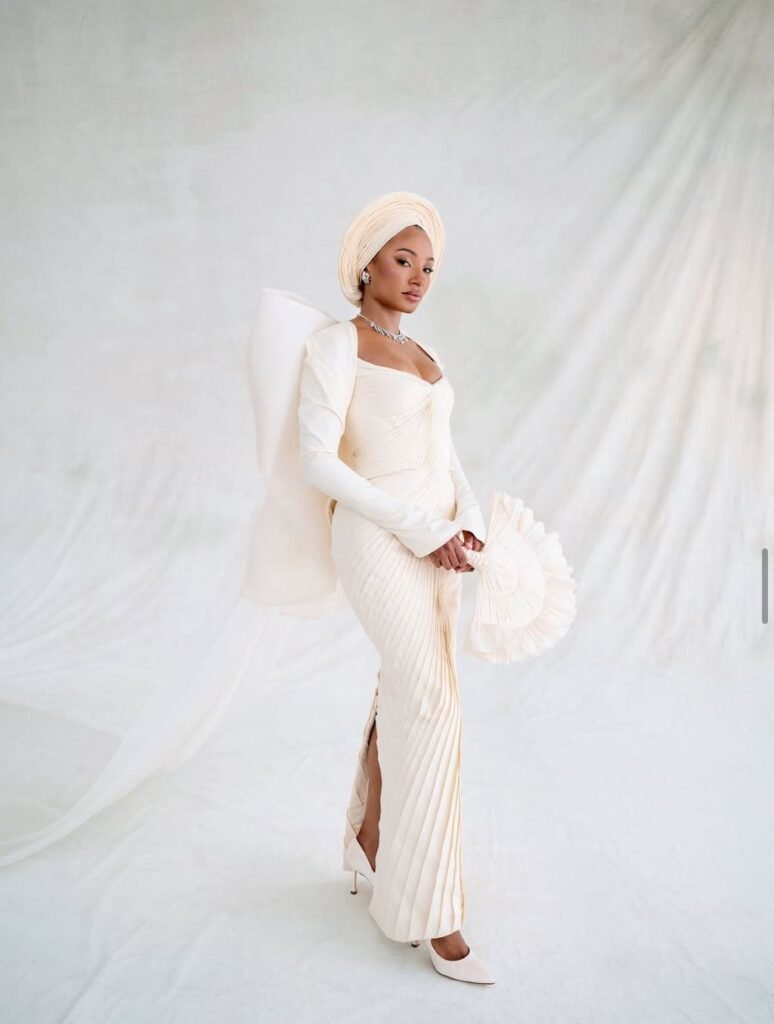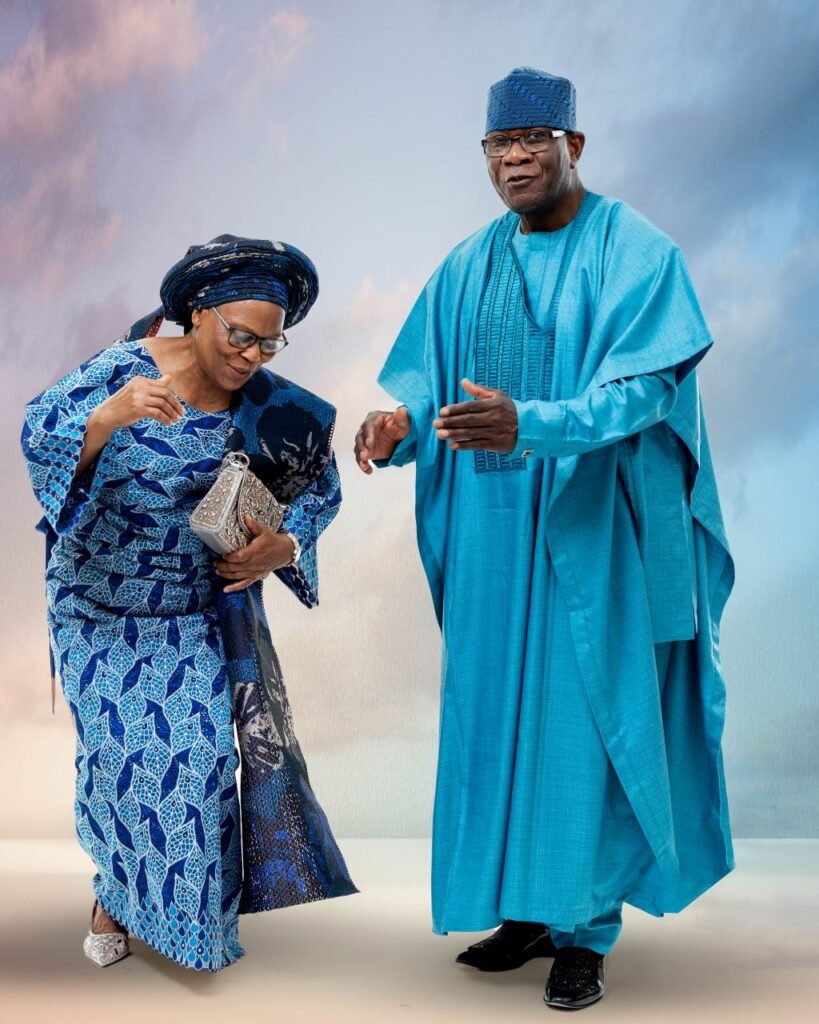
When two people come together in marriage, it’s not only about love, it’s about legacy. I was reminded of this so deeply at my parents’ recent celebration of 60 years together. My mum was just 15 when she met my dad.
They never had a wedding, never walked down an aisle, but they built a love story that has stood the test of time: rooted in faith, trust, and devotion. Watching them celebrate all these years together moved me.
It reminded me that a wedding is just the beginning, but the life you build together is the real masterpiece. That’s why I see weddings as more than events, they are cultural statements, reflections of who we are and what we value.
And that’s why Temi Otedola’s recent wedding caught the world’s eye. It wasn’t just a union of two people—it was a global showcase of Nigerian creativity, style, and identity.
What struck me most was how Temi chose to involve designers in interpreting Nigerian traditional wear. She showed the world that our culture can be celebrated on a global stage with elegance and intention.
But even more than that, she reminded us that a wedding should be deeply personal—an expression of who you are, not just a reflection of what is trending. There was something powerful about seeing a bride curate her day in a way that felt true to her story and her heritage.
But as I watched the coverage unfold, another thought stayed with me: while African fashion was celebrated, African wedding vendors were not.

The planners, the photographers, the people who quietly shape how weddings are remembered—were once again drawn from the usual circle of international luxury names.
This isn’t unique to Temi’s wedding. In almost every high-profile Black wedding featured in global publications like Vogue, the couples are celebrated, the fashion is celebrated—but the vendors from our own community remain largely invisible.
Research backs this up: despite diversity pledges, major outlets like Brides reported that while 28% of their newly published real weddings featured Black couples by the end of 2024, they still rarely spotlight the vendors behind those weddings—leaving many talented Black professionals without recognition.
Platforms like Rock My Wedding have openly admitted that Black-owned suppliers and their work have been historically underrepresented “across the glossy pages of magazines.”
LoveMyDress recently shared a heartfelt reflection about the state of wedding media — how what once felt magical can now feel like a sea of trends and perfection, where the “best of” lists are curated to showcase what looks good on Instagram rather than the heart behind the wedding. I couldn’t agree more.

Publications have an opportunity to go beyond aesthetics, to show the meaning, the story, and yes, the professionals who bring these cultural moments to life.
And I know some may say they hesitate to hire Black vendors because of a past bad experience or fear they won’t deliver at the expected level. But how will we ever change that perception if we don’t try? We need to give our own industry a chance — to trust that planners, photographers, florists, and creatives from the same culture we are celebrating can deliver excellence, and often even exceed expectations.
True representation isn’t just about who is getting married — it’s about who we trust to tell the story. Until Black wedding vendors are given more opportunities to work on these stages, the world will never see just how exceptional they can be.
